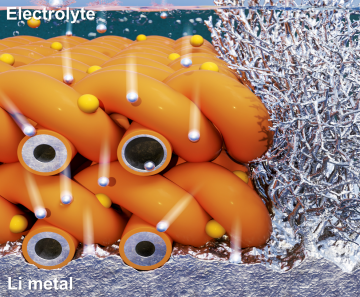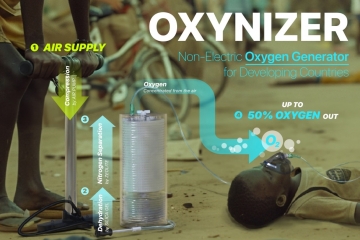KAIST
BREAKTHROUGHS
Research Webzine of the KAIST College of Engineering since 2014
Spring 2025 Vol. 24Novel method developed to produce gasoline by metabolically-engineered Escherichia coli
Novel method developed to produce gasoline by metabolically-engineered Escherichia coli
Based on the systems metabolic engineering approach, Escherichia coli was engineered to provide fatty acid derivatives that are shorter than normal intracellular fatty acid metabolites, and a novel synthetic pathway was introduced for the biosynthesis of short-chain alkanes (gasoline).
Article | Spring 2014
Gasoline, the most widely used fuel for transportation, is a mixture of hydrocarbons, additives, and blending agents. The hydrocarbons, called alkanes, consist of only carbon and hydrogen atoms. Gasoline has a combination of straight-chain and branched-chain alkanes (hydrocarbons) consisting of 4-12 carbon atoms linked by direct carbon-carbon bonds.
Previously, through metabolic engineering of Escherichia coli (E. coli), there have been a few research results on the production of long-chain alkanes, which consist of 13-17 carbon atoms, suitable for replacing diesel. However, there have been no reports on the microbial production of short-chain alkanes, a possible substitute for gasoline.
Prof. Sang Yup Lee’s lab engineered the E. coli fatty acid metabolism to provide fatty acid derivatives that are shorter than normal intracellular fatty acid metabolites, and introduced a novel synthetic pathway for the biosynthesis of short-chain alkanes. This allowed the development of a platform E. coli strain capable of producing gasoline for the first time. Furthermore, this platform strain, if desired, can be modified to produce other products such as short-chain fatty esters and short-chain fatty alcohols.
In this paper, Prof. Sang Yup Lee’s lab described detailed strategies for 1) the screening of enzymes associated with the production of fatty acids, 2) the engineering of enzymes and a fatty acid biosynthetic pathway to concentrate carbon flux towards short-chain fatty acid production, and 3) the conversion of short-chain fatty acids to their corresponding alkanes (gasoline) by introducing a novel synthetic pathway and optimization of culture conditions. Furthermore, the research team showed the possibility of producing fatty esters and alcohols by introducing responsible enzymes into the same platform strain.
This paper (entitled “Microbial Production of Short-chain Alkanes”) was published on October 24 in Nature and was also highlighted as a journal cover paper.
Reference: Yong Jun Choi & Sang Yup Lee. Microbial production of short-chain alkanes. Nature 502, 571-576 (2013).
Additional link for more information:
http://www.nature.com/nature/journal/vaop/ncurrent/full/nature12536.html
Most Popular

When and why do graph neural networks become powerful?
Read more
Smart Warnings: LLM-enabled personalized driver assistance
Read more
Extending the lifespan of next-generation lithium metal batteries with water
Read more
Professor Ki-Uk Kyung’s research team develops soft shape-morphing actuator capable of rapid 3D transformations
Read more
Oxynizer: Non-electric oxygen generator for developing countries
Read more
